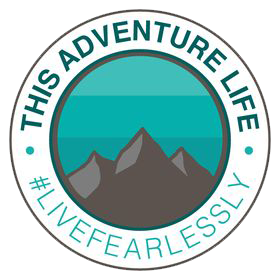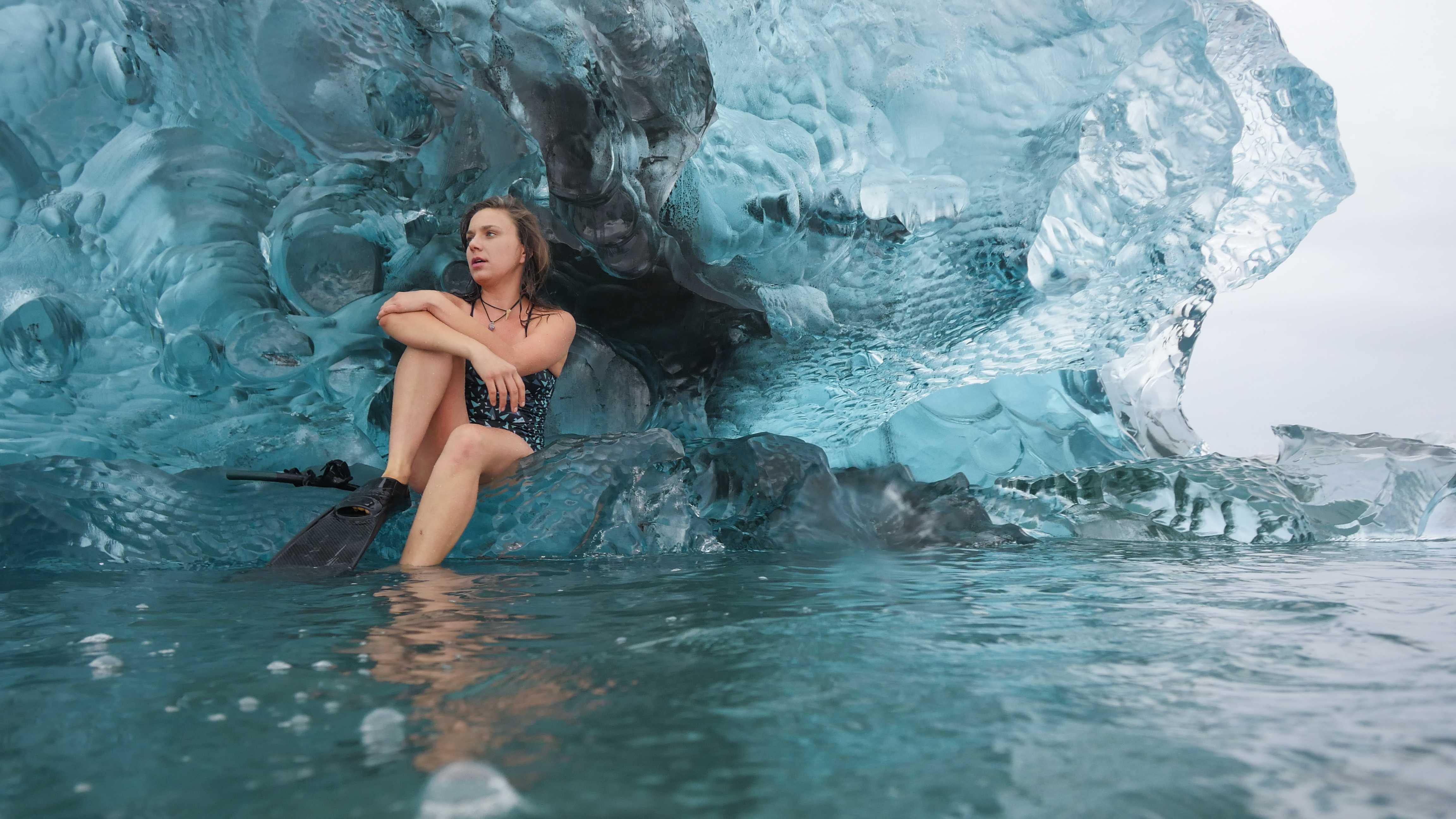Kiki Bosch is an adventurer, nutritionist and biohacker from the Netherlands, now living in the UK. Described as a true daredevil, Kiki is an experienced freediver and extreme cold specialist. She has recently dived some of the coldest waters in the world. During her last trip in Greenland she swam in sub-zero glacial waters with nothing but a swimsuit for 20 minutes.
“Diving next to these massive Icebergs was a whole new level of cold. These big giants radiate cold like a heather does into your home. Even underwater I could feel clouds of chill running straight through me and into my bones. The sound of cracking of ice was constant and often drowned out nearby whale noises. I knew I was in the hands of nature and felt incredibly small yet connected to these immense forces.”
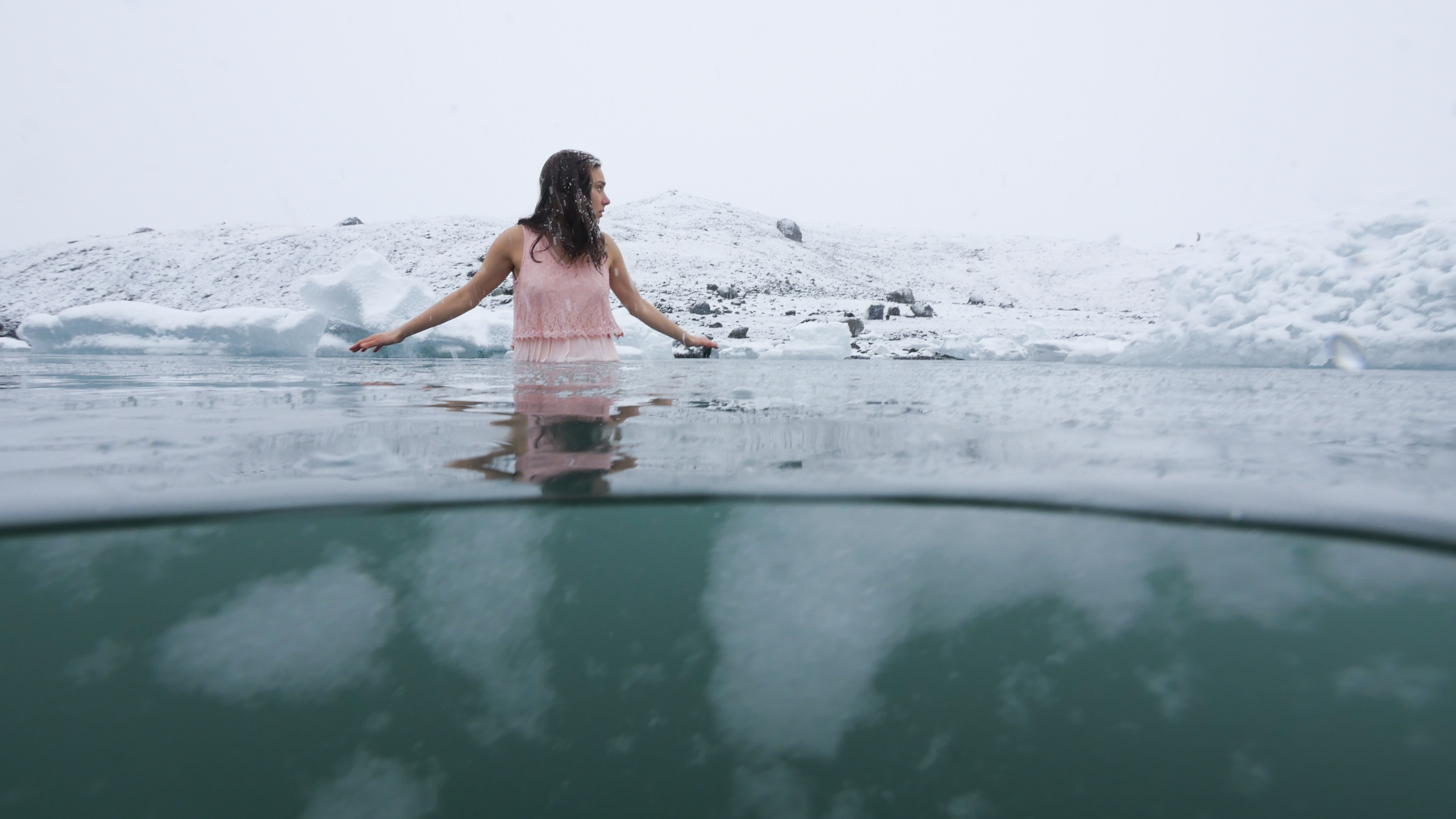
You say that you use the cold as your teacher. How does the cold help shift your mindset into the present moment and allow you to overcome obstacles?
When I first got into the cold I was in a very depressed and anxious state in my life. I recently had gone through a trauma and didn’t really know how to cope with that. The cold really forced me to get out of my head and into my body. For the first time in months I forgot about my fears, doubts and my history.
Over time, I was drawn back to the cold to really get back to myself and centre myself. When I started to do more and more cold exposure I started to realize that the traumatic moment in my past, doesn’t have to define me and I was able to let go of the blame and hurt I felt because of this experience.
I realized that I am not my past and even though this moment in time definitely changed me, this doesn’t have to be in a negative way. The cold showed me that there is a primal resilience in all of us and when we tap into that, we are capable of doing much more than we thought we could.
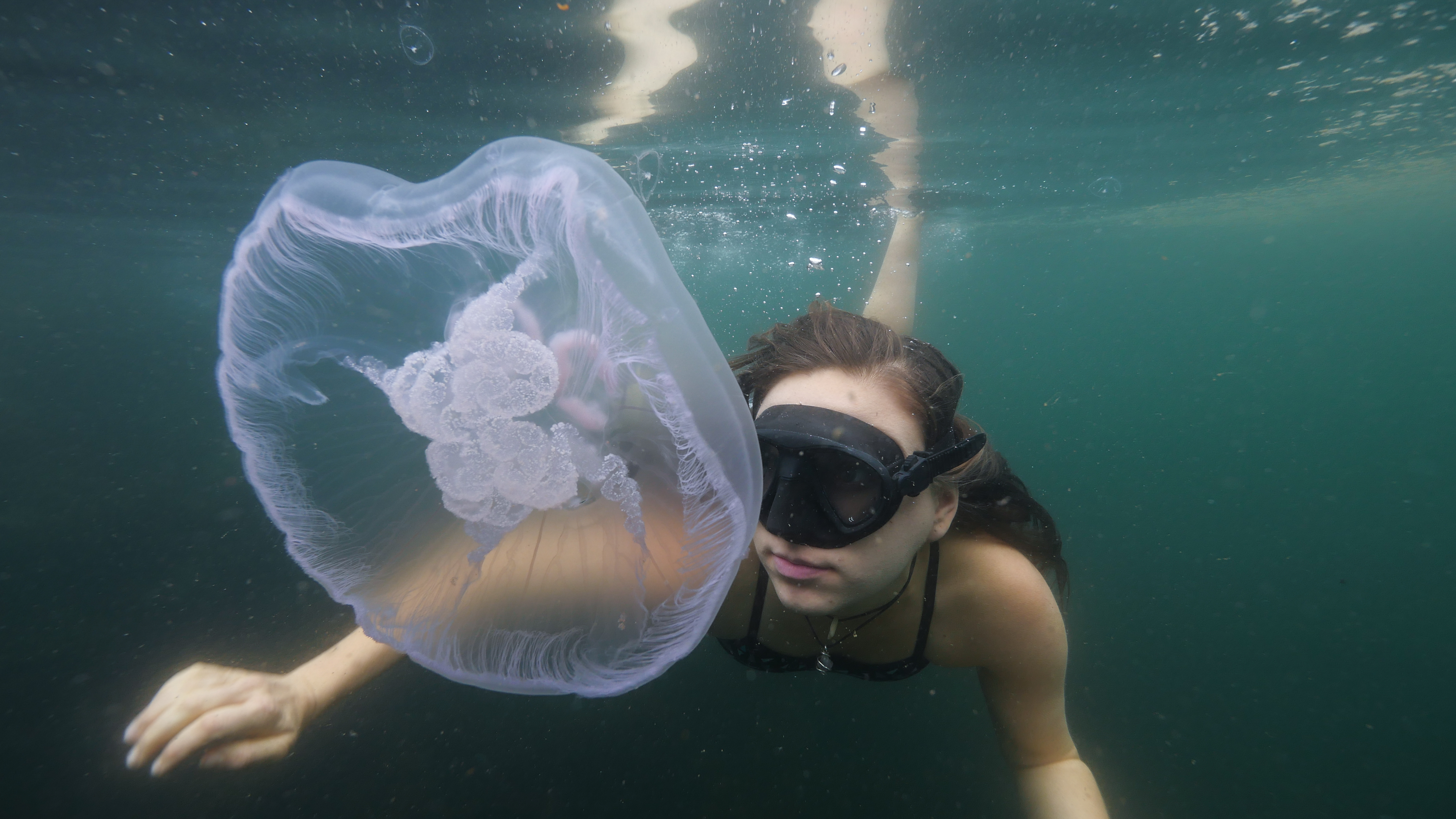
What drew you to cold water diving?
The water always fascinated me. Right from a young age, I always swam a lot and learned to scuba dive when I was 12. The first time I saw a poster of a free diver, I immediately knew it was something that I needed to try. Since my first freediving training in Colombia, I immediately fell in love with everything about this sport. I then knew for sure that this sport would be something I would be doing for the rest of my life.
The cold, is a whole other story though. I heard about a guy called Wim Hof a few years ago and saw that he did amazing things in freezing temperatures. He inspired me to challenge myself and really experience the feeling of cold first hand. I tried my first winter diving in South Australia when the water was roughly 14 degrees. Back then it was the coldest water I had ever been diving in without a suit. Since that I became addicted and just keep challenging myself more and more which led to seeking out the coldest waters in the world.
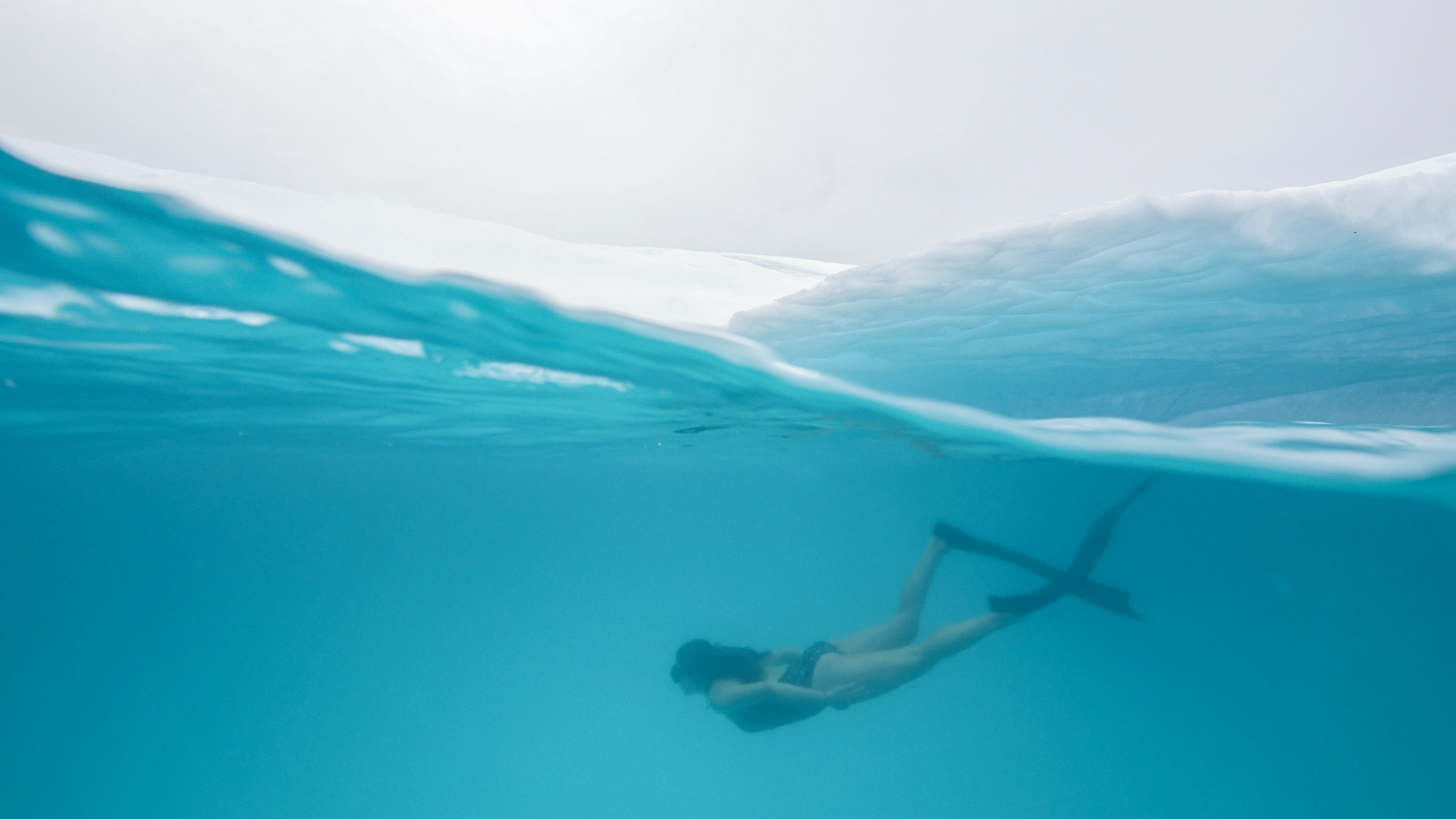
What is the most challenging part of diving and interacting with the cold water? What do you do to overcome this?
For me the hardest part is knowing when to get out. Staying in the safe zone is crucial for ice freediving. You really need to know how your body reacts to all of the changes that are happening in your body.
There are so many signs and signals that you need to tune in to to reflect on the state of your body.
The first signs of the cold, are the tingling or stinging feeling you have at the start. This is for most of the people a sign to get out as quickly as possible. But once you push through this, your body accepts the cold and you have to tune into more subtle cues. For me, the first thing that gets cold is my right pinky finger, after a certain amount of time in the water, I am unable to move it. This is the start of a whole scale of events unfolding within me. I can feel a warm rush through my body, which means that my veins are dilating and the core is no longer protected from the cold, which could quickly lead to hypothermia. At this stage focus is crucial, I focus on my vision, because this as well is something that I start to loose when I am getting cold. Before I go into the water I pick something I can focus on. Like a rock, the boat, or a landmark that is roughly 20-30 meters away. When I am no longer able to focus on this object, or it gets blurry I know it is time to get out.
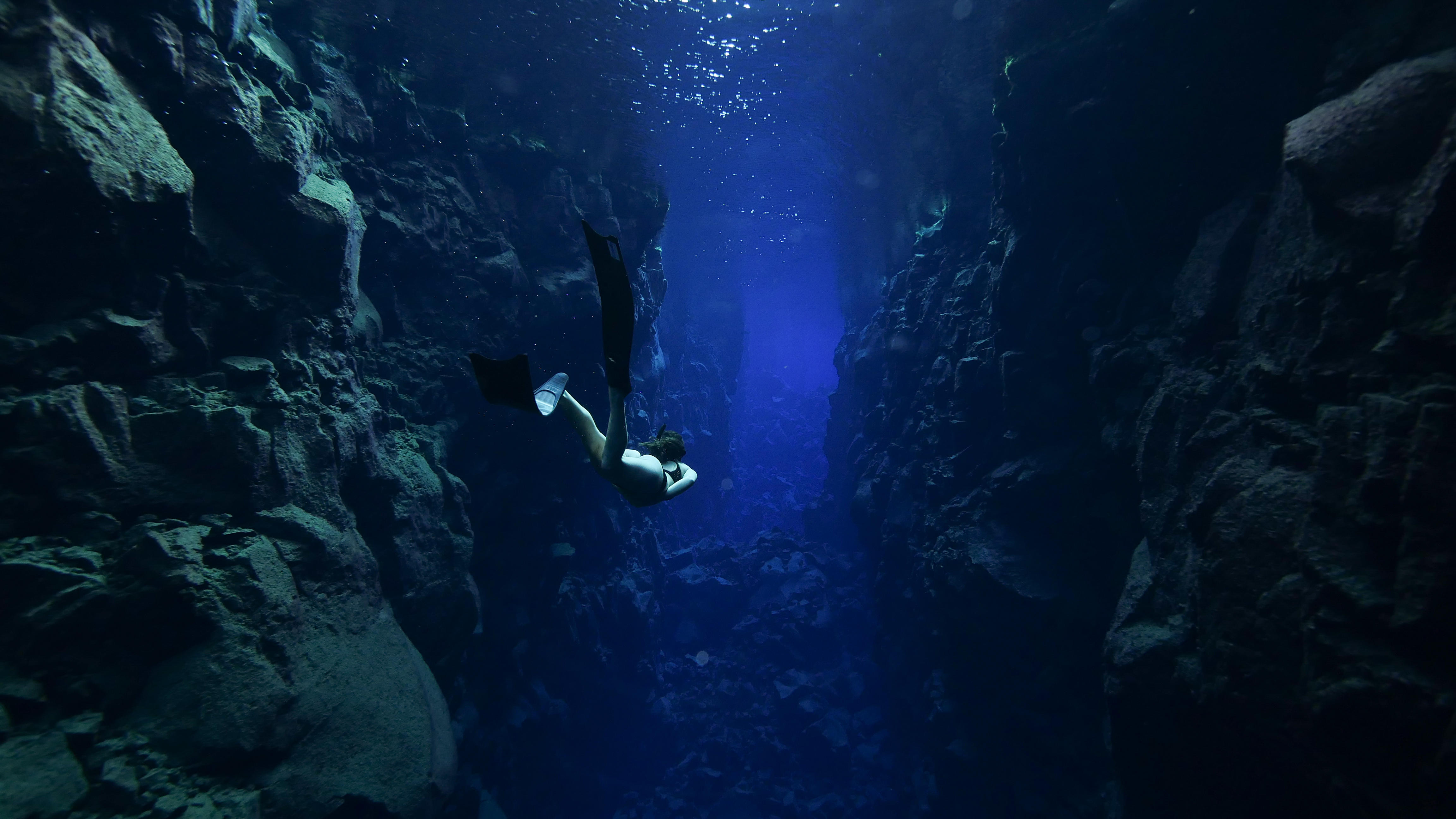
One of your life’s mottos is “Disturb the Comfort.” Can you elaborate upon the concept of this motto?
I think that these days we are all getting way to comfortable with ourselves. We are not primal anymore. Most of us have a roof over our head, food on the table and an environment where we are always comfortable. In order to connect to deeper parts of ourselves, I believe that we have to disturb this state of being. If that is by challenging ourselves to run a marathon, do yoga, etc.
What is the coldest place you have been diving?
When I did my first dive in the Arctic water in Greenland which was -2 °C; it was so immensely cold. Even after months of training for this it was still a big shock to me. The fact that the water was sub-zero was a game changer. It felt like nothing I had ever experienced.
Once I got out of the water, it was incredibly hard for me to get warm. I was experiencing after drop. The body is very smart in this and keeps your core and vital organs warm for quite a while even if you are in extreme conditions. After drop is when the cold blood from your extremities mixes back up with the warm blood of your core. This mixing of blood can drop your overall core temperature even more than the original exposure and your body goes through yet another challenge. At this point the cold blood in your chest can be quite painful. During these moments it is crucial that my team know their roles and keep safety a biggest priority. It is for this reason I never recommend anybody to just jump into cold water without proper training of supervision.
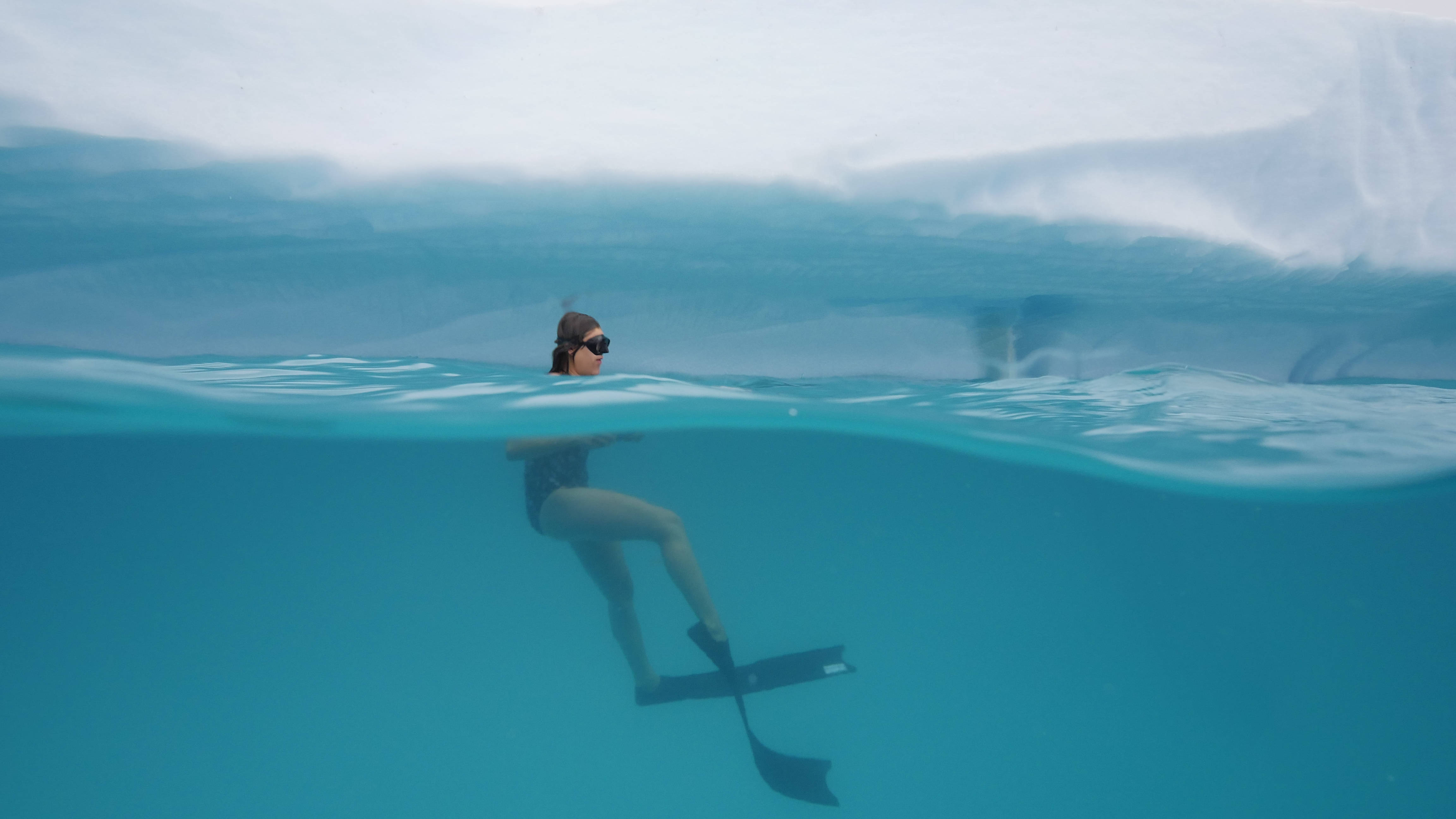
Where is your favorite diving spot so far?
Silfra, Iceland! By far. The first time I visited Iceland was one of the most exciting and memorable trips so far. It was my first experience with freediving in such cold temperatures and there is no better place to do this than swimming between the tectonic plates, having a viability that can’t even be put in numbers…
It was such a great feeling, I felt one with the water, one with the planet and every being on it. Besides that cold is part of the Icelandic culture and while I was there I met a lot of amazing people who found great benefits in the cold. It was meeting these people that made the trip truly remarkable.
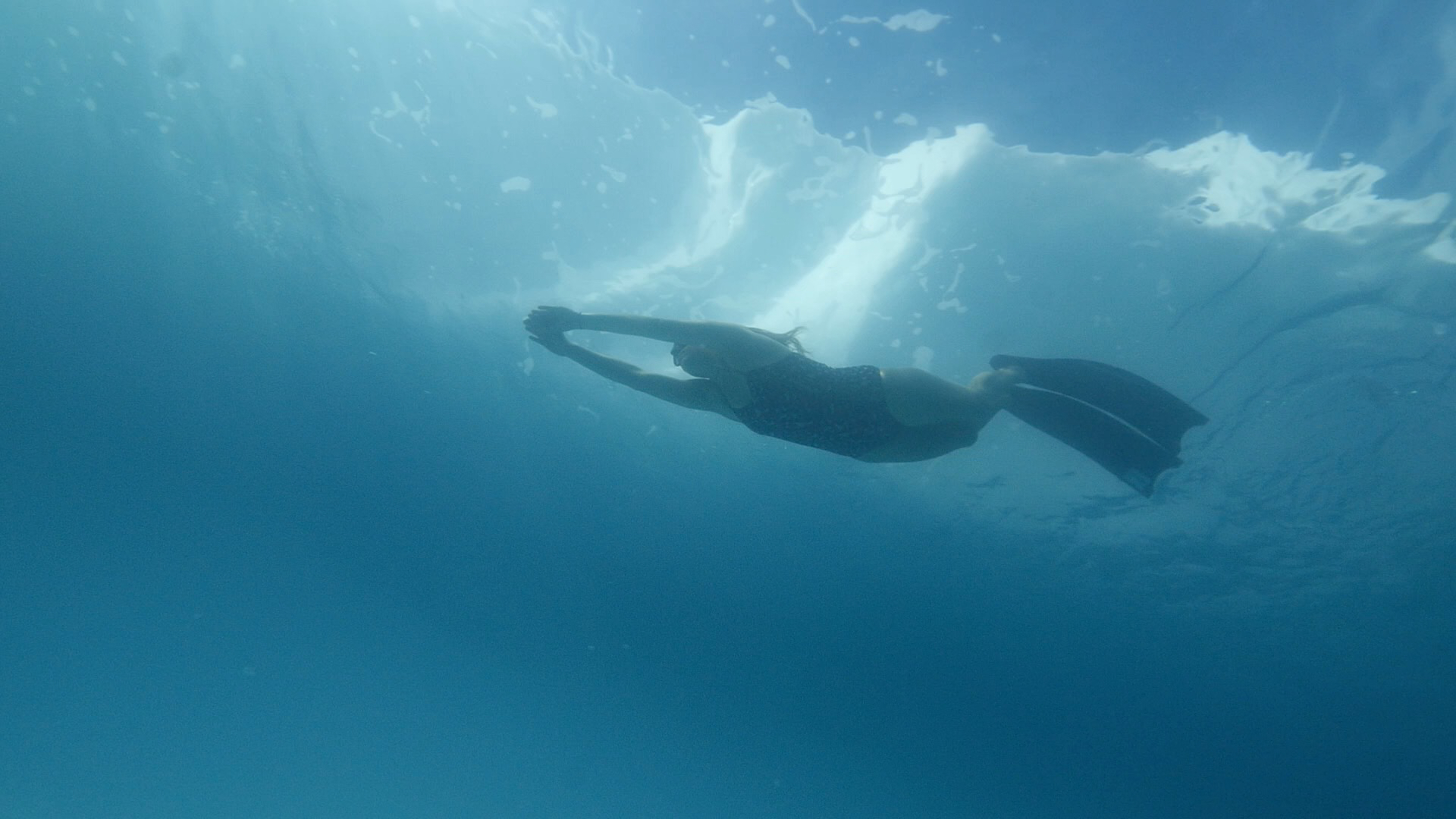
What do you do before you freedive?
Before getting into the cold, my mind is always screaming to not do it, to stay comfortable. I’ve learnt that’s the point you need to really push yourself and it’s empowering to find that moment to switch and, let go of those thoughts and feelings. Once I am in the water, there is no way “out” and I know that there is nothing I can do besides being as relaxed as possible.
What helps you get into the present moment?
When I am diving I always focus on the warm places in my body, because there is always something within me that is still warm. I try to hold on to that heat rather than trying to focus on keeping the cold out.
The cold shock causes my skin to tingle and sometimes even sting. But I try to not focus on that too much and just acknowledge it as a feeling as a stimuli of my body. When I am in the cold for a few minutes I often realize that my thoughts start to become a bit slower, and my reaction time decreases. When I feel that, I know that focus is crucial. When I am not 100% focussed on my body, it can soon become dangerous. Because I am so hyper alert of every little change in my body and mind, I can tell exactly when I need to get out. Once I’ve made that decision I always stay very calm,sit somewhere quiet and meditate. This more than anything helps my body warm up gradually. If I am in a very cold or windy environment I will always put my Dryrobe on.
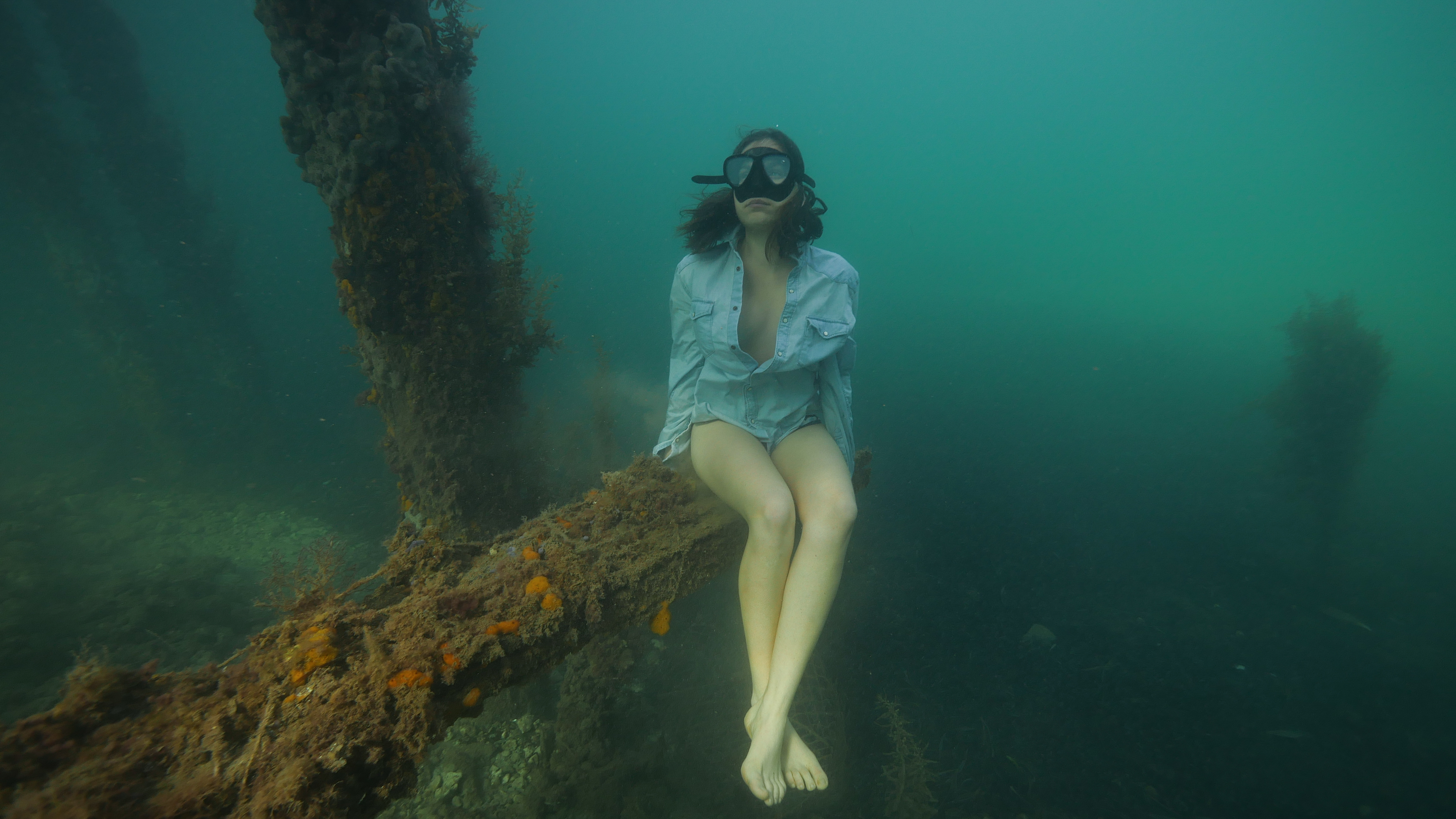
What would your advice be to someone looking to overcome obstacles and live their dream life?
Go out and do it. This sounds very cliche, but it is so true if you want to overcome something, you have to start making steps in order to make it possible. Start where you are with what you have. Nobody has the perfect life, or gets the perfect opportunities thrown at them. You have to actively seek, explore, make mistakes and learn from them. There is no shortcut, the obstacle is the way. You learn by doing, not by dreaming. #themagicisinthedoing.
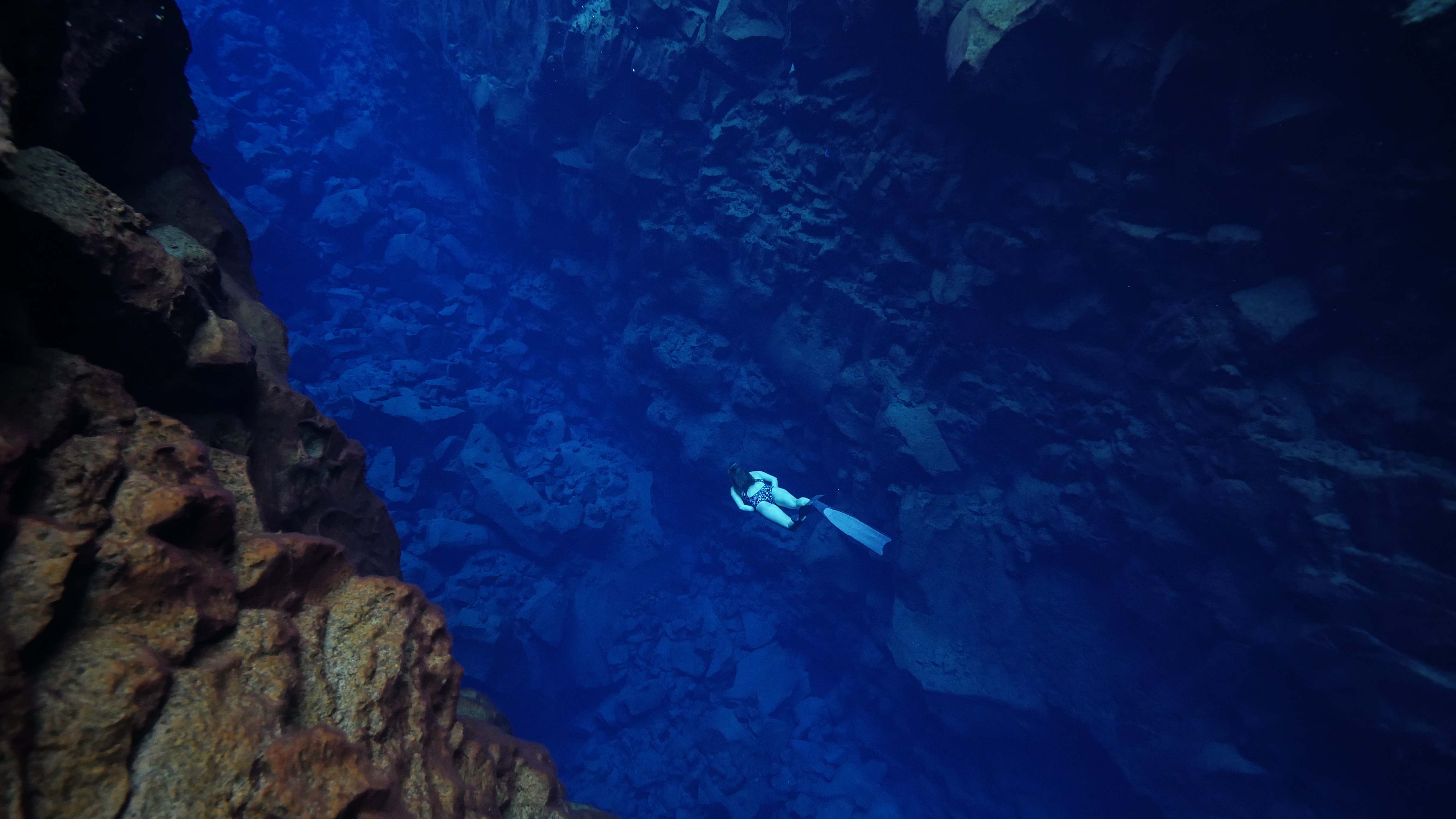
Where is your next big adventure?
I can’t reveal my next big adventure just yet, but it will be somewhere high up and obviously cold. It will be a whole different level of freediving an I am super excited to share more about this crazy adventure when I can!
Follow Kiki on Social Media:
Instagram: @_kiki.bosch_/
Website: www.kikibosch.com
At This Adventure Life we celebrate the lives and stories of the people who live life fearlessly. #livefearlessly
